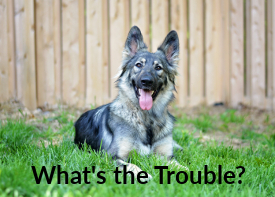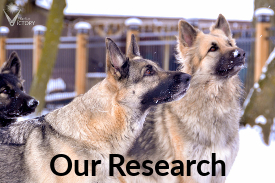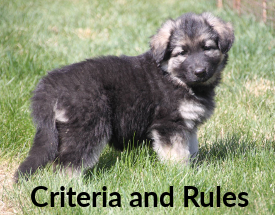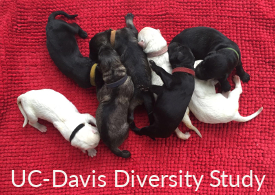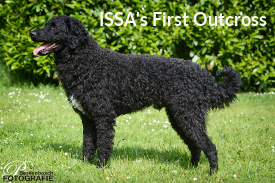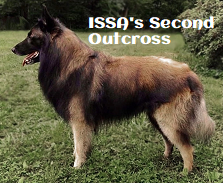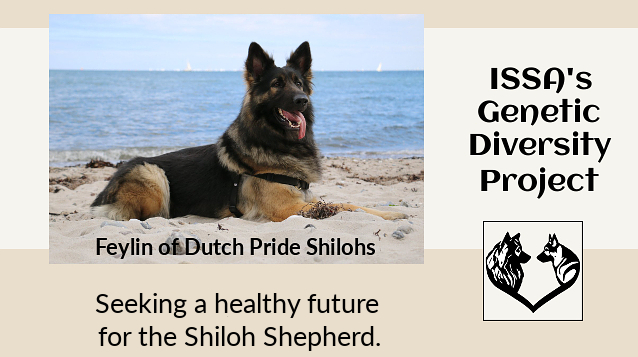
ISSA's Shiloh Shepherd Genetic Diversity Project
We love our Shilohs, and our ultimate goal is to keep the look and temperament of the breed exactly the way it is. However, there's mounting evidence that our breed won’t stay healthy for long unless we learn to breed in a new way.
The trouble is, the variety of diverse genes within a breed of dogs shifts and can shrink over time. It's just a product of which dogs get bred and which don't. But as the pool of available genes becomes lopsided or reduced, issues can follow. Lowered diversity impacts everything from the incidence of genetic diseases to whether or not your dog suffers from allergies! It can even impact the frequency of cancer in a breed.
There are two ways to tackle this problem. The first way is to do a genetic diversity study--the same sort of thing we've done with UC-Davis. This lets you find the more diverse dogs within your breed, to make sure they can be used, so their genes are not lost. Hopefully, it also allows you to spread the rarer clusters of genes around in your pool, and also to match dogs with different genetic profiles to make sure that their puppies are at less risk for genetic issues.
However, the diversity study, even when followed by a cohesive plan of action, only keeps your diversity where it is. It can't introduce any new genetic material. If the breed is already less diverse, or having numerous genetic health issues, then keeping it in the same place may not bring as much help as is needed for future generations to be healthy.
This brings us to the second way to help our breed: what we call outcrossing, or crossbreeding. This is the only way to bring in fresh genes for our population. The ISSA believes that the best way forward for the Shiloh Shepherd is to bring in small strains of unrelated blood--dogs from breeds very different from ours--and then carefully, a little at a time, add this blood into our gene pool.
The important pups from these cross-breedings will then immediately be bred back to pure Shilohs, to regain our dogs' appearance and temperament--but with better health and longevity. Better yet, we aim to utilize our diversity study in a new way--to help us track and preserve the new genes we gain.
Our genetic diversity study with UC-Davis showed us clearly that we are the least diverse breed in their database. Worse, though our dogs are pretty healthy now, we are seeing the beginning of a rise in some genetic diseases, as well as some other red flags that show us we need to add diversity.
You have questions? So did we! We'd like to invite you to follow our journey. Click on the picture links below to read all about it!
The Problem and the Solution
Research and Guidelines
Plans for the Future
- Click here to go to our first page, which talks about why the ISSA feels outcrossing is necessary.
- Want to read more about our Genetic Diversity study with UC-Davis? You can check that out here to see what stage we're at.
- If you'd like to look at our upcoming litters, including outcross litters, you can read about them here.
